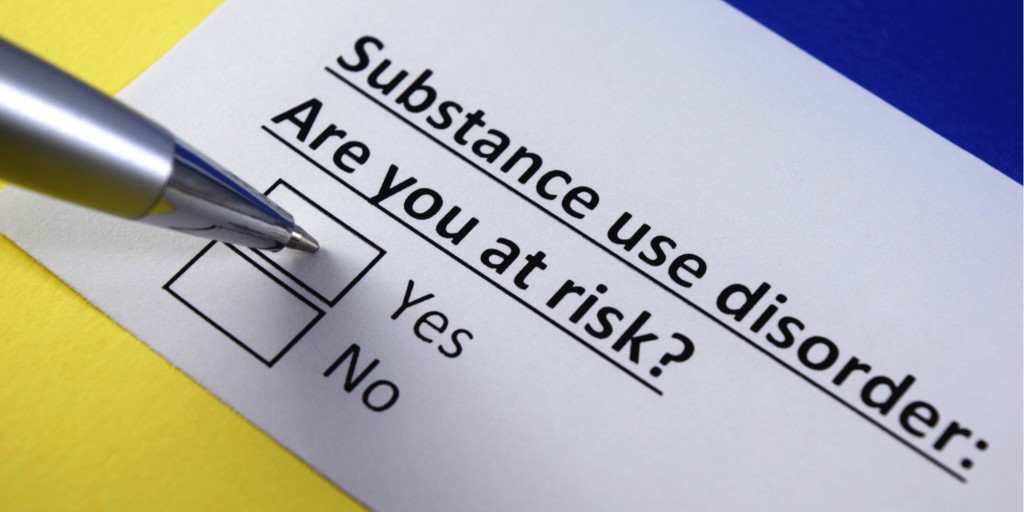
More and more veterans are struggling with something called SUD. But what is SUD? And how is it impacting veterans? Here, we’ll address all of your questions related to SUD, including what it is, what it does to veterans, and, most importantly, how to get help for SUD today.
Table of Contents
What Is SUD?


Substance use disorder (SUD) is a mental health condition in which a person is physically and mentally dependent on an addictive substance. The National Institute of Mental Health describes that substance use disorders directly impact one’s behaviors as well as short- and long-term health. Common SUDs include an addiction to:
- Alcohol
- Opioids
- Prescription drugs
- Stimulants
Data suggests that at least 10 percent of all adults living within the United States have struggled with substance abuse, but only a quarter of those people sought out help. Unfortunately, not getting help for a SUD can be extremely dangerous.
SUDs, when left untreated, can lead to serious health consequences such as:
- Brain damage
- Memory loss
- Mental illness
- Overdose
- Heart failure
Also, substance abuse can cause people to suffer with work, school, finances, personal relationships, and might even lead to trouble with the law. All in all, having a SUD can take control of a person’s life very quickly. To avoid this happening, people who have SUDs need to seek out professional treatment. This is especially true for veterans.
How Does SUD Affect Veterans?
Many people are surprised to learn that veterans have a greater likelihood of struggling with SUD than the general population. In fact, studies show that a large percentage of veterans are in need of treatment for substance abuse, but not nearly enough of them know how or where to seek help.
This trouble finding resources and treatments that are specific to veterans is one of the reasons why so many service members continue to struggle with SUD. Often, the questions that veterans need answered are more complicated than “what is SUD?” For example, there are many reasons as to why veterans are at an increased risk of having SUD.
The responsibilities that a veteran takes on can be monumental—even life-threatening. As a result, many veterans faced traumatic experiences while serving. Events such as military sexual trauma, combat exposure, or service injuries would all be traumatic for a veteran to go through.
When veterans return home, their brains and bodies might still be in fight or flight mode. Mental health conditions like post-traumatic stress disorder (PTSD) are quite common for veterans because of this as well. Research on the link between PTSD and SUD actually shows that veterans who have one of these conditions are much more likely to also have the other. For this reason, it’s important to know if you have undiagnosed PTSD.
Symptoms of PTSD to watch out for include:
- Nightmares
- Flashbacks
- Avoidance of triggers
- Persistent anxiety
- Mood changes
- Engaging in risky behaviors (e.g., driving while intoxicated, having unprotected sex, etc.)
These symptoms of PTSD, general trauma, and other mental disorders can be distressing for veterans to experience—especially when they aren’t sure how to get help. Thus, in response to these traumatic events, veterans might turn to drugs or alcohol to block out the pain. This is where SUD begins.
When veterans or any person suffering with trauma rely on addictive substances as a type of coping mechanism, it just prolongs the true problem. Moreover, using drugs and alcohol can actually make symptoms of depression, anxiety, PTSD, and other mental disorders worse. The habit of using drugs or alcohol to block out pain actually leads to more pain, and it becomes a vicious cycle that repeats again and again.
Substances most frequently abused by veterans would be:
- Cocaine
- Amphetamines
- Pain pills
- Alcohol
There are many other substances that veterans struggle with in addition to the ones listed above. And all of these substances pose a great threat to veterans’ health and happiness. But getting the right kind of treatment can benefit every aspect of veterans’ lives.
Treatment for Substance Use Disorders


With this answer to the question, “What is SUD?” we can now look at ways for veterans to get help. However, as stated earlier, substance abuse can cause long-lasting damage both physically and mentally. Therefore, it’s important to seek out help for a substance use disorder as soon as possible.
That said, SUD is treatable. For veterans, getting treatment that addresses the root cause of the substance abuse in addition to its symptoms is essential in maintaining recovery. Without this action on the mental health issues and trauma that comes with being a service member, veterans won’t have all the skills necessary to keep fighting the urge to turn to drugs or alcohol.
This is why veteran-focused treatment is vital. Treatment facilities that are made by veterans for other veterans will have certain approaches toward recovery, such as:
- Medically supervised drug and alcohol detox
- Cognitive behavioral therapy (CBT)
- Eye movement desensitization and reprocessing (EMDR) therapy
- Group support
- Family counseling
- Recreational and art therapies
- Job preparedness training
- Nutritional assessments
- Discharge services
Looking at the whole picture of veterans’ experiences helps to inform on why they might struggle with a SUD to begin with, but this viewpoint also guides the treatment process. Each recovery path veterans take should be unique and catered to their specific needs. For this reason, finding a treatment center that can listen to and understand veterans can make all the difference in their recovery.
What Should Veterans Do for SUD?
For veterans who have a substance use disorder and want to get help, Heroes’ Mile is here to lend a hand. We are a facility built from the ground up by veterans with veterans in mind. We understand just how challenging living with a substance use disorder as a veteran can be—and we want to help make recovery easier and more comfortable.
To get more information on SUD and to see if you qualify for drug or alcohol rehab, give us a call at 888-838-6692. You also have the option to complete a confidential contact form with your questions, comments, and recovery goals. There is light at the end of this tunnel with SUD rehab. Improve your life by calling today.
The post Veterans Want to Know: What Is SUD? appeared first on Heroes’ Mile Veterans Recovery Center.
Source
Original Author: Heroes’ Mile

